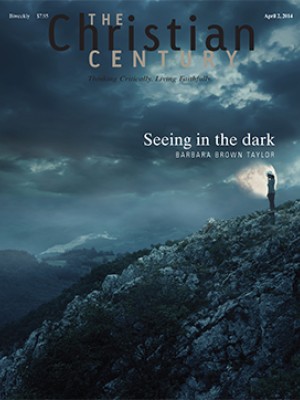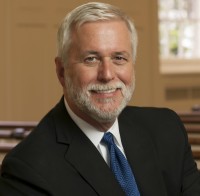One calling of many
Jill is 25 years old, one of the sharpest students to blow through our seminary, and very dedicated to her calling to become a pastor. As she wraps up three years of exemplary work at our school she has begun to look for her first parish assignment, and the interviews have gone well. I’m not surprised.
Her professors and field education supervisors affirm her with praise. But Jill doesn’t have friends on campus. When she eats in the cafeteria she sits at a table in the corner by herself and does homework between bites of a meal she never notices.
Read our latest issue or browse back issues.
After making an appointment to see me and confirming the time, Jill enters my office, drops her backpack on the floor, and sighs. “I have two job offers,” she begins. “They are both for ordained positions at churches. One is in Chicago and the other one is in upstate New York.” She goes on to describe the churches and the positions, which sound remarkably similar. There isn’t a lot of passion in Jill’s speech or countenance. She looks more like a woman lost in a crossword puzzle as one of her hands twirls in her long hair.
Then she says, “I would love to know the opinion of an older pastor [thanks, Jill] about what I should do.”
Precisely because I have been at this a while I know better than to answer her question. So instead I begin my response by backing up and commenting that it’s wonderful she has two offers when so many graduating students are struggling to find one. This is met by another sigh.
Jill sees this freedom to make a choice not as a blessing but a burden. The more she talks the clearer it becomes that she’s approaching this challenge as seriously as she did all of her studies, and I assume most of her life. She very much needs to know the right answer. Where is she supposed to be—Chicago or New York? Or to put it in her words, to which congregation is she being called by God?
We decide to pray about her dilemma. I pray after she does and take another shot at being grateful that she has choices. But as I say those words I get the sense she has dropped out of the holy conversation.
When the hour is over Jill comments that I still haven’t told her where I think she should go. I think about saying, “I doubt God is up all night worried about this choice.” I even consider: “Do you really believe God is thinking, ‘I hope she doesn’t go to Chicago because I can’t help her there’?”
Instead I muster up as much spiritual maturity as I can find and say, “I dunno.” It is at this point that people always figure out why pastoral counseling is free.
This I do know, and I tried to offer it to Jill that afternoon when we talked about her focus on not making a mistake as a new pastor. We all live with many callings in life, and the greatest is not to be a pastor. It’s certainly not to be in the right job at a particular congregation. We are called to take care of our bodies as well our souls. We’re called to live in relationships of covenant. We’re called to participate in the mission of Jesus Christ in the world. Some of us are called to the ministry of word and sacrament, which is no greater a calling than to be what Luther called the “little Christ” as a banker, teacher, homemaker, or nurse. But most of all we are all called to glorify and enjoy God.
Nothing gets in the way of this highest of all callings more than trying to get the right answer on which fork to take in the road. God owns all the roads. As C. S. Lewis once said, “God can use even the wrong road to get you to the right place.” That right place is not to a particular job, but deeper into the divine heart. Of course we should pray about important choices like which church to serve, but most job choices are less important than we think. Jobs are just a means of fulfilling our life vocations.
As an “older pastor” I now see that one of my vocations is always to be a pastor. I have fulfilled that calling with lots of different jobs—first as associate pastor, then Ph.D. student; later I fulfilled this vocation with jobs as senior pastor, seminary professor, and seminary president. I could have taken different jobs at different churches or seminaries. God, my highest calling, would not have abandoned me if the hiring committees or I had chosen differently along the way.
My challenge is to figure out how to communicate this freedom to Jill, who is burdened by her job options. It probably can’t be done. She will have to wait until she finally makes what she later decides was a bad choice and then discovers that God doesn’t care so much. And maybe on that day she will demythologize the call to be right all the time about work and start caring more about her other callings—like having friends.







